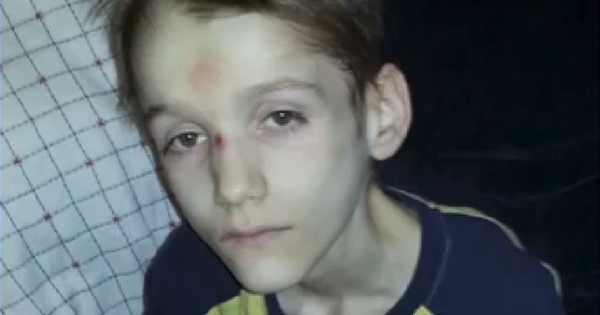Advertisement
A teenage boy was deprived of food and sustenance by his parents who neglected and left his alone for years. His parents were not charged with first-degree murder, The Globe and Mail reports.
60-year-old Emil Radita and 54-year-old Radita were found guilty of murdering 15-year-old Alexandru Radita. According to Judge Karen Horner, the two parents left their son hungry and malnourished for years.
Alexandru reportedly weighted only 37 pounds. He died in 2013 due to complications related to his diabetes and starvation. He was one of the couple’s eight children.
Judge Horner said, “Mr. and Mrs. Radita intended to and did isolate Alex from anyone who could intervene or monitor his insulin treatment aside from themselves.”
She continued, “Alex died as a result of bacterial sepsis brought on by extreme starvation. His physical condition at death was not a sudden or quick occurrence but rather took place over months and possibly, probably years.”
According to Judge Horner, Alexandru was treated unlawfully. He was isolated and confined to the point that he had to completely rely to his parents for almost everything.
Horner also clarified that the boy’s parents were completely aware with what they did to their son. The couple intentionally did not administer appropriate amount of insulin to him.
Judge Horner said, “The evidence underscores that the Raditas were well aware how ill Alex was and still refused to treat his medical condition with proper insulin protocol and medical care.”
She added, “They knew he was dying.”
According to The Globe and Mail, the parents did not display any remorse for what they did when they were sentenced. The Raditas were sentenced to life imprisonment and without a chance of parole for 25 years.
Judge Horner said, “Your actions in starving your son Alex to death are beyond comprehension. You persisted in arrogant confidence...until he was dead.”
According to witnesses who testified against the couple, the two denied in their minds that Alexandru had diabetes and did not provide him with proper treatment for his disease until he was finally taken to the hospital in British Columbia in 2003.
Social workers took the boy away from his parents and placed him in foster care. Alexandru successfully went back to a much healthier state after almost a year. When he moved back with his family, they moved to Alberta.
Patricia MacDonald, one of the social workers, said, “I’m happy with the verdict. I think that it really is justice for Alex. He went through a horrible ending to his life and I’m glad to see his parents being held accountable.”
MacDonald wanted to see the faces of the Raditas one last time before they spend their lives in prison. She added, “I just feel like they’re so empty. They’re void of any kind of emotion, any kind of feeling. I’ve never met parents like them in my life.”
According to further testimonies, when the Raditas moved to Alberta, Alexandru was immediately enrolled in an online school program for about a year. The boy, however, did not finish the program.
The boy also did not see any doctor in Alberta, as there were no records that could prove that he did. The boy did have an Alberta health insurance number.
The parents tried to defend themselves by saying that it was against their religious beliefs to take their son to the hospital and be checked on by the doctors.
According to Globe and Mail, the family went to the church the same day when Alexandru died. They said that their son passed away. However, God had managed to resurrect him.
Susan Pepper, Crown prosecutor, said, “This was a really difficult case for all involved. The facts that Justice Horner found were such that you really did see the magnitude of Alex’s suffering, how long it was and how extensive it was.”
Pepper continued, “Certainly the evidence that was presented in court does show that the system and the social safety net in our province and in our country did fail Alex.”
The prosecutor and others who were deeply involved in this case and in putting the parents to jail hopes that this could make way for the country to address changes in terms of child care and its improvements in the future.




